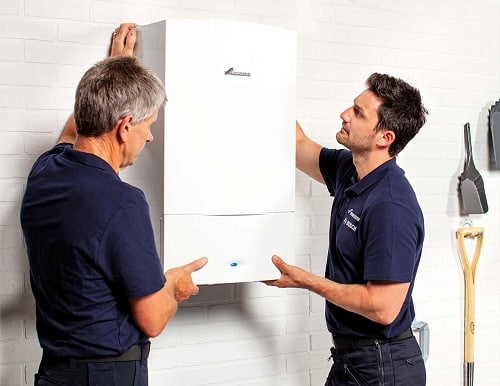
Boilers, like any other home appliances, have a certain lifespan. This lifespan can vary depending on the model and how well it’s maintained. It’s not uncommon for some boilers to last anywhere from 10 to 25 years. Now, if a boiler has reached or exceeded its typical lifespan, it might be time to consider replacement options. In such situations, it’s worth noting that there are resources available that could potentially assist with the costs of a new boiler. One such resource is the government grant for boiler, which under the ECO4 giant initiative aims at helping low-income families upgrade to more energy-efficient models. However, the specifics of this program can vary by location, and it’s always recommended to conduct personal research to understand what’s applicable in your area.
How long do boilers last long before they become older and in-efficient?
Boilers are complex machines with many moving parts like pumps, valves, and electronic components. These parts wear out over time, even if they’re good quality. Moreover, boilers go through a lot of temperature changes. As a result, this can stress out the pipes and joints. But how long it lasts depends on how well you take care of it. Well, regular servicing and maintenance can make it last longer, giving you more benefits in the long run. Other things like how often you use the boiler and whether you properly install it can also affect how long it lasts. On average, most boilers last around 15 years before they become too old. But there are other signs to watch out for besides just age. So it is hard to tell if a boiler isn’t working efficiently, but a yearly check-up by a pro can help.
How to determine your boiler’s age?
Firstly, you need to locate the rating plate. You typically find it on the side or bottom of the boiler. Secondly, find the serial number or date of manufacture. This could be a combination of letters and numbers. Now, interpret the Information. The serial number or the date of manufacture can give you an idea of the boiler’s age.
However, if you’re still having trouble interpreting the information on the rating plate, it’s best to consult a heating professional or the boiler’s manufacturer. They can provide accurate information based on the specific model and make of your boiler.
Remember, knowing the age of your boiler is important for maintaining its efficiency and planning for potential replacements. So if you’re unsure, don’t hesitate to seek professional advice.
How many years can you expect different types of boilers to last?
Ever wonder how long your trusty boiler will keep your home warm and cozy? Boilers, like most appliances, don’t last forever. But how long exactly depends on the type of boiler you have. Here’s a quick guide:
- Combi boilers (heat & hot water): Most last 10-15 years, like the Worcester Bosch Greenstar or Ideal Vogue Max.
- System boilers (separate hot water tank): Similar lifespan to combi boilers, like the Viessmann Vitodens.
- Regular boilers (heating only): Might last a bit less, 7-12 years, like the Baxi Platinum Combi.
- Oil boilers: Can last 10-15 years with care, like the Grant Ultracom.
- Electric boilers: Typically shorter lifespan, 5-10 years, due to simpler design.
- Biomass boilers: Can last 10-15 years, but depend on fuel type and maintenance, like the KWB Easyfire.
Remember, these are just estimates. Regular servicing helps any boiler last longer!
How can I increase the lifespan of your boiler?
To increase your boiler’s life expectancy and keep your heating system running smoothly, follow these steps:
- Get an annual service: Firstly, have an engineer service your boiler yearly. They’ll check for efficiency and spot any early signs of damage.
- Prevent corrosion: Secondly, ask your engineer to add an inhibitor to your system. This protective coating prevents rust and limescale buildup, which can damage your boiler.
- Prevent sludge buildup: Next, install a magnetic filter in your system’s pipework. This filter catches sludge and debris before it reaches the boiler, prolonging its life.
- Power flushing: Finally, if you have an older boiler with limescale or sludge buildup, consider a power flush. This involves pushing a cleaning chemical through the system to remove buildup, extending your boiler’s lifespan.
Taking these steps can help your boiler last longer and save you from costly repairs or replacements.
Bottom line
Boiler lifespans vary. Every manufacturer boasts different types of warranties and guarantees. So you should always research before purchasing a new boiler. Factors include model and maintenance. Some last 10 to 25 years. Moreover, replacement is an option when the lifespan ends. So there are resources like the government grant for boilers that can help you with the replacement. These, in fact, can help with costs. However, carefully look into all these factors and choose wisely.
